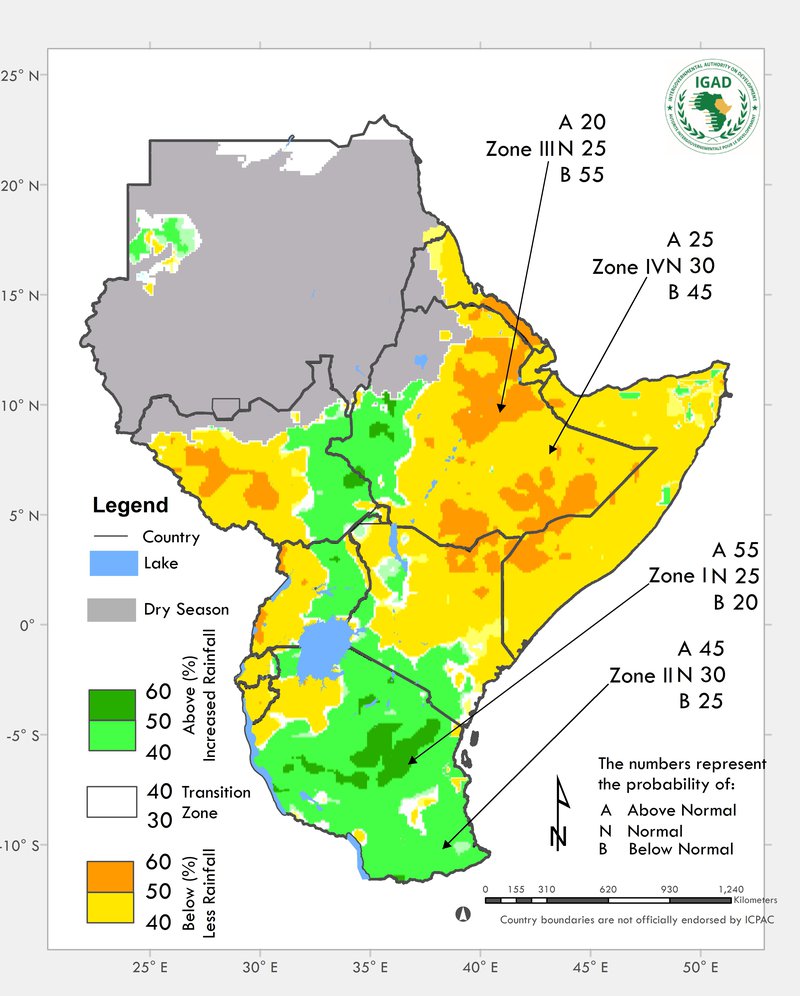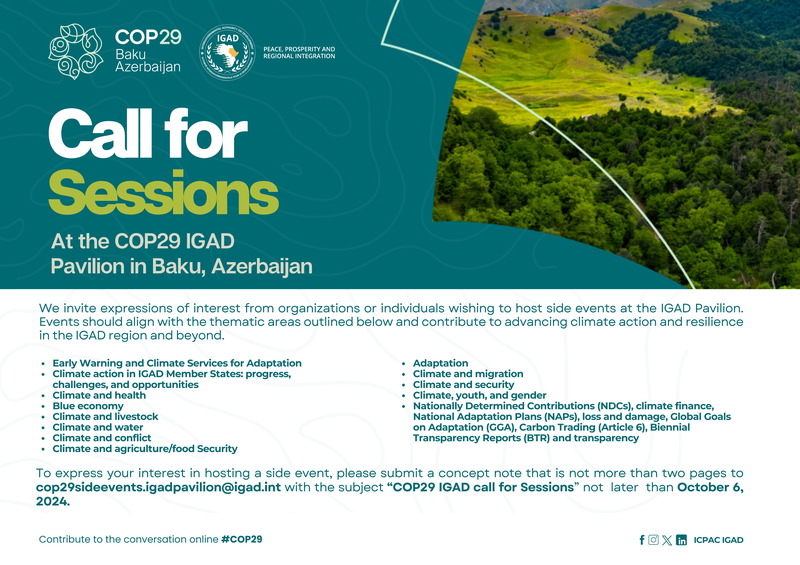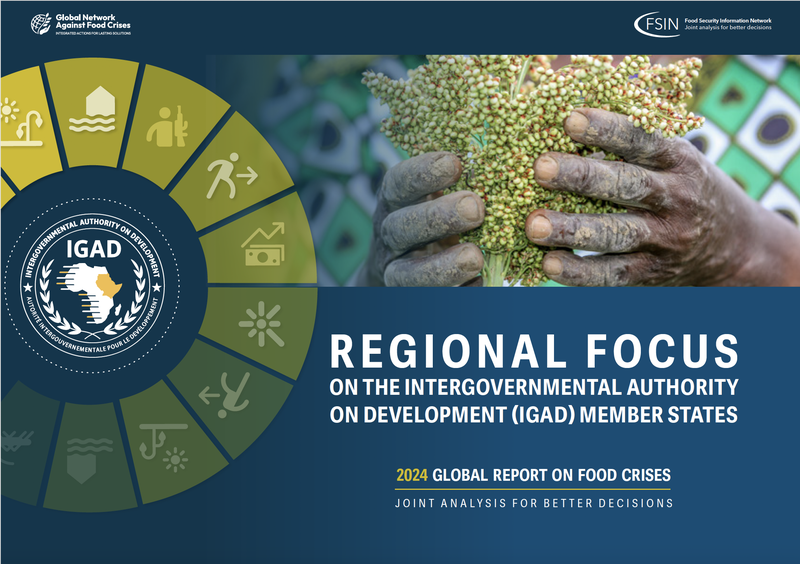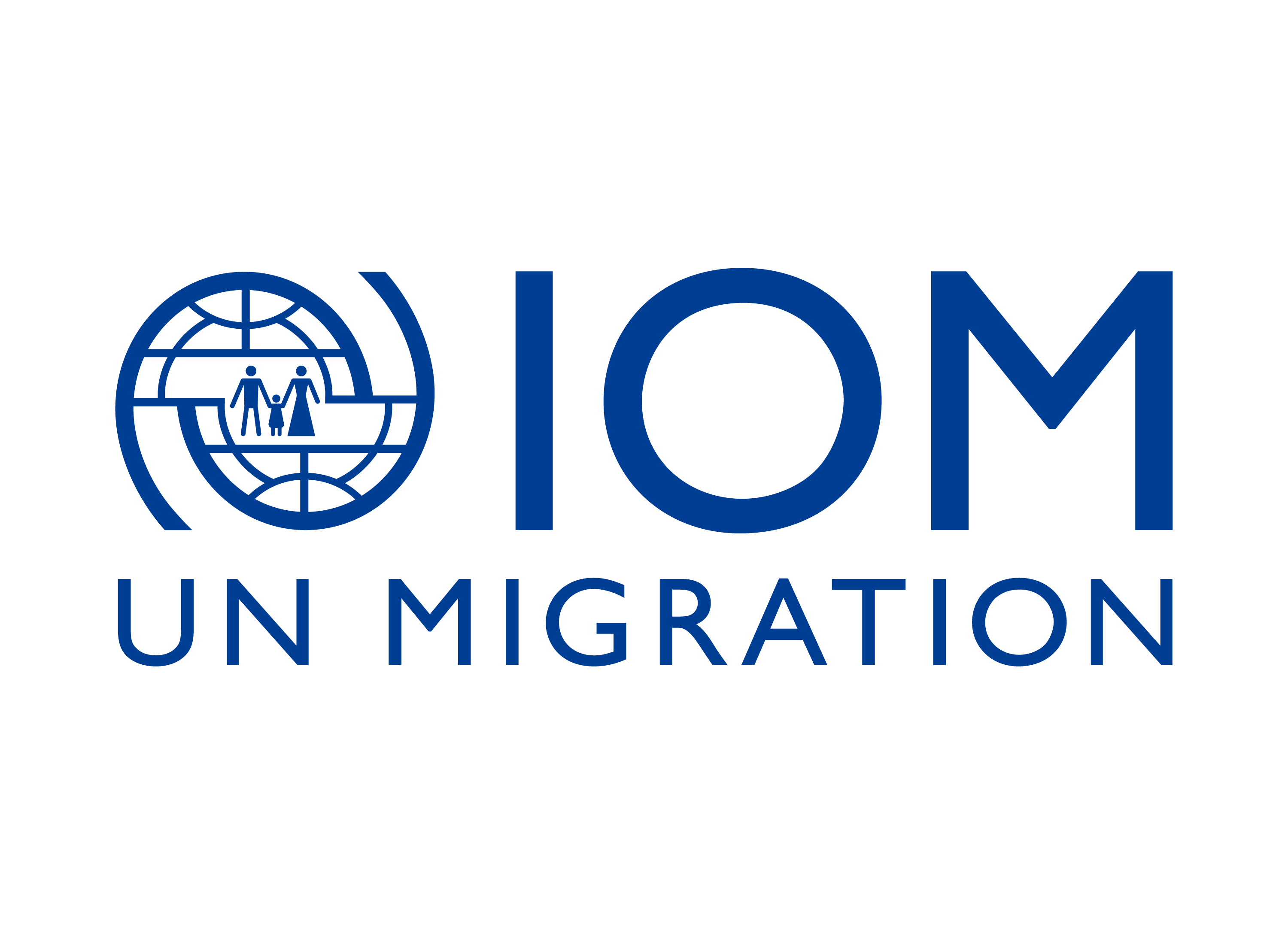Addressing climate-induced mobility challenges in the IGAD Region
Climate change, disasters, and environmental degradation are key drivers of human mobility, leading to increased displacement globally. The nexus between these factors is recognized as a critical challenge, emphasized at COP20 in Lima in 2014 and supported by recent IPCC reports predicting higher displacement due to climate impacts, especially among vulnerable populations. Human mobility in this context includes migration, forced displacement, and planned relocations, influenced by extreme weather, environmental shifts, and socio-economic factors. The IGAD region experiences various forms of human mobility due to complex drivers, prompting the need for comprehensive research and policy initiatives to address climate-induced challenges effectively.

Our Areas of Work
Data and knowledge
This project aims to enhance evidence-based and inclusive policymaking regarding climate change's effects on human mobility by gathering and analyzing data across regions, promoting inclusive decision-making processes. Moving ahead, the emphasis is on turning evidence into practical actions, enhancing response times, and broadening data collection efforts to improve accuracy and predictability, considering the diverse nature of the IGAD region. ICPAC, in collaboration with partners, has bolstered evidence-based policymaking by creating decision-making models and risk profiles for disaster displacement, accessible through the ICPAC Geoportal.
National and Regional Policy frameworks
IGAD will provide support to national governments in the region to incorporate human mobility considerations in the context of disasters, climate change, and environmental degradation into relevant policy areas.
Integrating human mobility in stakeholder coordination structures
Through the project, IGAD aims to improve policymakers' and stakeholders' understanding of human mobility amidst climate change, facilitating informed decision-making and knowledge acquisition. ICPAC aims to integrate human mobility into its programs and extend its reach to IGAD platforms, fostering better sharing of insights and actions related to human mobility, disasters, and climate change across IGAD member states and communities.
Capacity building
The program aims to improve IGAD policymakers' understanding of disaster displacement risk models, with a specific focus on climate-induced displacement. It also aims to create actionable knowledge products that can help translate analytical findings into policy recommendations for IGAD member states.
Key outputs
- Enhance IGAD's capacity for climate-induced migration policy coordination.
- Strengthen the ICPAC climate risk management capacities.
- Strengthening the awareness and capacities of local actors in dealing with human mobility.
- Encure human mobility is incorporated into the regional and global forum's agendas.
Latest News
Latest Updates

Summary for Decision Makers, June to September 2025 Season
Download our Summary for Decision Makers with impacts and advisories for the June-September 2025 se…

Technical Statement from the 70th Greater Horn of Africa Climate Outlook Forum (GHACOF 70)
The 70th Greater Horn of Africa Climate Outlook Forum (GHACOF 70) was held from 19 - 20 May 2025, o…

Summary for Decision Makers, March to May 2025 Season
Download our latest Summary for Decision Makers with impacts and advisories for the following secto…

Statement from the 69th Greater Horn of Africa Climate Outlook Forum (GHACOF69)
The 69th Greater Horn of Africa Climate Outlook Forum (GHACOF69) was held from 20 to 21 January 202…











